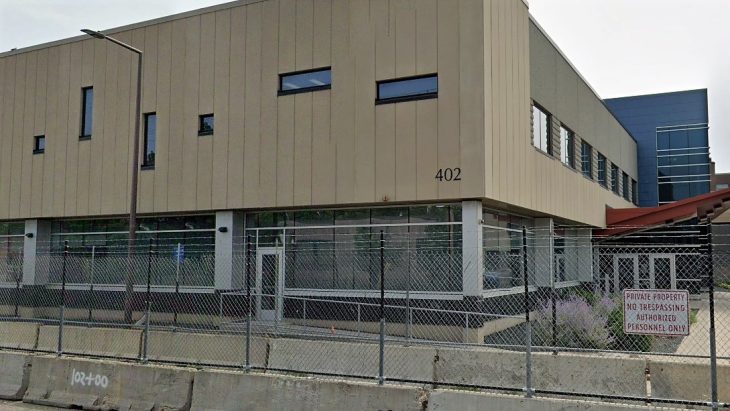Ramsey County Detox Center

About Ramsey County Detox Center
The Ramsey County Detox Center is a county-operated facility providing detoxification or medically monitored withdrawal management services. Their services also include assessments, interventions, and referrals. They’re situated north of Bruce Vento Nature Sanctuary and east of the Minnesota State Capitol in the East Side neighborhood of Saint Paul. The center serves nearby cities like Minneapolis, Roseville and Maplewood. The beauty of it is that the County’s Mental Health Urgent Care is housed here as well.
Urgent care provides 24/7 crisis support for patients experiencing acute psychiatric or substance use disorders like overdose or severe withdrawal symptoms. Patients experiencing withdrawal symptoms are typically referred to the detox center for medical supervision.
You’ve flexible and affordable options regarding funding for your substance use care. They accept Medicaid, Medicare and several private insurance options. They also offer income-based sliding fee scales or discount rates for the uninsured and underinsured. Ramsey County may even cover your treatment via the Behavioral Health Fund (BHF) if you meet eligibility.
Medically Monitored Detox In Ramsey County
Detox is geared towards weaning the body of addiction-related toxins in preparation for the main therapy. The thing we like most about Ramsey County Detox is that they’re culturally responsive to your language and dietary needs or preferences. Experienced physicians will rigorously monitor your vitals and other risk factors to ensure your withdrawal symptoms don’t pose medical risks.
They may prescribe FDA-approved medication assisted treatment (MAT) if necessary to help you manage painful withdrawal symptoms. You’ll enjoy highly nutritious meals to reinvigorate your immune system and boost your physical energy. You’ll also have plenty of rest and exercise to foster general wellbeing.
The procedure may last between 1-5 days. You’ll be referred to the appropriate level of care within the County for ongoing support after detox.
| Levels of Care | Detox Service Setting | Programs | Payment Options | ||||
|---|---|---|---|---|---|---|---|
|
Inpatient and residential programs provide round-the-clock medical and emotional support as you live at the treatment facility. This level of care may be recommended if you have severe addictions or mental health conditions since it removes outside distractions and allows you to focus solely on therapy. |
Aftercare programs provide ongoing support after you complete a rehab program. They may include several components to help you maintain sobriety including therapy, community support groups and relapse prevention strategies. This gives you a network of resources as you reintegrate into your daily life. |
||||||
|
Inpatient detox occurs in a dedicated treatment facility. You’ll live there around the clock and receive intensive medical support and supervision to help manage your withdrawal symptoms. It is suitable for individuals with moderate to severe addictions as it ensures a stable detox environment. |
|||||||
|
Adult programs address the substance use and life challenges specific to adults. Therapists can deliver sessions in individual, group and family settings. Services often include job support and life skills training in a structured environment. |
Alcohol detox programs offer medical support to help individuals withdraw safely from alcohol. Your care team may use medications to ease your symptoms and provide medical monitoring to address complications. |
Cognitive behavioral therapy focuses on changing harmful thought patterns and behaviors associated with addiction. You’ll learn healthier coping mechanisms by identifying and replacing negative thoughts. This improves your emotional resilience and decreases your relapse potential. |
Drug detox programs support individuals who are withdrawing from addictive substances like cocaine and heroin. Medical support helps you manage symptoms in a controlled and safe environment so you can achieve initial sobriety. |
Men's programs address substance use while also considering the social pressures, family roles and mental health concerns that are specific to men. You’ll learn healthy coping mechanisms as you build emotional resilience and develop communication skills. |
Opioid detox uses medications to ease severe withdrawal symptoms. It also includes medical supervision to help you manage potential complications. These services allow you to stabilize and begin a recovery plan. |
Women's programs offer a safe and supportive space to focus on gender specific issues such as trauma, family roles and mental health conditions. Therapists tailor the sessions to address women's needs and foster empowerment in a healing and nurturing environment. |
Young adult programs are designed for individuals who are transitioning into adulthood. Topics of discussion typically include identity, independence and peer relationships. Providers may also offer life skills training and career support. |
|
Payment Assistance
|
Private Insurance
|
Self Pay
|
Levels of Care
Inpatient and residential programs provide round-the-clock medical and emotional support as you live at the treatment facility. This level of care may be recommended if you have severe addictions or mental health conditions since it removes outside distractions and allows you to focus solely on therapy.
Aftercare programs provide ongoing support after you complete a rehab program. They may include several components to help you maintain sobriety including therapy, community support groups and relapse prevention strategies. This gives you a network of resources as you reintegrate into your daily life.
Detox Service Setting
Inpatient detox occurs in a dedicated treatment facility. You’ll live there around the clock and receive intensive medical support and supervision to help manage your withdrawal symptoms. It is suitable for individuals with moderate to severe addictions as it ensures a stable detox environment.
Programs
Adult programs address the substance use and life challenges specific to adults. Therapists can deliver sessions in individual, group and family settings. Services often include job support and life skills training in a structured environment.
Alcohol detox programs offer medical support to help individuals withdraw safely from alcohol. Your care team may use medications to ease your symptoms and provide medical monitoring to address complications.
Cognitive behavioral therapy focuses on changing harmful thought patterns and behaviors associated with addiction. You’ll learn healthier coping mechanisms by identifying and replacing negative thoughts. This improves your emotional resilience and decreases your relapse potential.
Drug detox programs support individuals who are withdrawing from addictive substances like cocaine and heroin. Medical support helps you manage symptoms in a controlled and safe environment so you can achieve initial sobriety.
Men's programs address substance use while also considering the social pressures, family roles and mental health concerns that are specific to men. You’ll learn healthy coping mechanisms as you build emotional resilience and develop communication skills.
Opioid detox uses medications to ease severe withdrawal symptoms. It also includes medical supervision to help you manage potential complications. These services allow you to stabilize and begin a recovery plan.
Women's programs offer a safe and supportive space to focus on gender specific issues such as trauma, family roles and mental health conditions. Therapists tailor the sessions to address women's needs and foster empowerment in a healing and nurturing environment.
Young adult programs are designed for individuals who are transitioning into adulthood. Topics of discussion typically include identity, independence and peer relationships. Providers may also offer life skills training and career support.
Accreditations
Contact

Chika Uchendu is a multi-niche and seasoned SEO writer with expertise in personal finance, technology and health. He’s had over 10 years of experience creating impactful content that resonates with diverse audiences. His journalism and digital marketing background enables him to combine data-driven analysis with engaging storytelling. This helps drive engagement and grants target audiences access to valuable information.
Chika has worked for Benzinga, Motley Fool, Webopedia and many other popular online media outlets on a freelance and contractual basis. He is using his voice to drive awareness and meaningful change among people dealing with the pandemic of substance use disorder. Chika is an ambivert who enjoys sports, hiking, reading and video gaming.

Peter W.Y. Lee is a historian with a focus in American Cold War culture. He has examined how popular culture has served as a coping mechanism for the challenges and changes impacting American society throughout the twentieth century.




